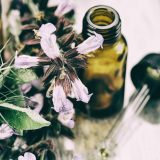The Australian Government is now in caretaker period. During this time, updates on this website will be published in accordance with the Guidance on Caretaker Conventions, until after the election.
The Australian Government commissioned a review of the clinical effectiveness of 16 natural therapies excluded from private health insurance rebates in April 2019. The Department of Health and Aged Care engaged National Health and Medical Research Council (NHMRC) to assist in its review by commissioning evidence evaluations that assessed published scientific research on the excluded therapies. NHMRC completed its role in the Natural Therapies Review 2024 with submission of all finalised evidence evaluations to the Department of Health and Aged Care in January 2025.
To read the final review report, recommendations from the Chair of the Department’s Natural Therapies Review Expert Advisory Panel and evaluations of individual therapies, please refer to the Department of Health and Aged Care's website. Links to each evidence evaluation are included under the therapy descriptions below.
Research protocols for all evidence evaluations can be found on PROSPERO. Links are included under the therapy descriptions below.
Background
From 1 April 2019, 16 natural therapies were excluded from private health insurance rebates. This decision was informed by the 2014–15 review of the Australian Government Rebate on Natural Therapies for Private Health Insurance (2014–15 Review).
NHMRC assisted the Department of Health and Aged Care in its Natural Therapies Review 2024 by commissioning evidence evaluations that assessed published scientific research on 16 natural therapies excluded from private health insurance funding following the 2014–15 Review.
The 16 natural therapies reviewed were Alexander Technique, aromatherapy, Bowen Therapy, Buteyko, Feldenkrais, homeopathy, iridology, kinesiology, naturopathy, Pilates, reflexology, Rolfing, shiatsu, tai chi, Western herbal medicine and yoga.
NHMRC established the Natural Therapies Working Committee (NTWC) in 2019 to oversee the evidence evaluations. The final term of the NTWC ended on 31 December 2024.
NHMRC commissioned independent evidence reviewers to prepare and conduct research protocols and evidence evaluations and methodological reviewers to review these documents. All contractors have finalised their roles in the Natural Therapies Review 2024.
NHMRC Process Report
NHMRC has developed a Process Report outlining the development of the documents that assessed the clinical effectiveness of the 16 natural therapies. This report can be found at, NHMRC Process Report.
Therapies reviewed
The Natural Therapies Review evaluated the clinical effectiveness of the following therapies:
Alexander Technique
Alexander Technique aims to retrain habitual patterns of movement, improve postural support and coordination, relieve pain, reduce stress and improve performance by consciously altering automatic responses and tonic muscular activity.
The Alexander Technique research protocol can be found on PROSPERO.
The Alexander Technique report and appendices can be found on the Department’s website.
Aromatherapy
Aromatherapy is the therapeutic use of essential oils to treat, influence or modify the mind, body and spirit to promote health and wellbeing.
The Aromatherapy research protocol can be found on PROSPERO.
The Aromatherapy report and appendices can be found on the Department’s website.
Bowen Therapy
Bowen Therapy is a remedial, hands-on technique based on the use of gentle pressure and release of the soft connective tissue (fascia) of the body. The technique involves a sequence of light, cross-fibre movements of varying pressure at specific sites on the body using thumbs and fingers in a specific manner.
The Bowen Therapy research protocol can be found on PROSPERO.
The Bowen Therapy report and appendices can be found on the Department’s website.
Buteyko
Buteyko is a health education program involving breathing retraining techniques, posture, and lifestyle guidelines, with the aim of returning breathing to normal physiological levels.
The Buteyko research protocol can be found on PROSPERO.
The Buteyko report and appendices can be found on the Department’s website.
Feldenkrais
The Feldenkrais Method® aims to improve human life through better movement, sensation, posture and breathing. The Feldenkrais Method is based on principles of physics, biomechanics, and an empirical understanding of learning and human development.
The Feldenkrais research protocol can be found on PROSPERO.
The Feldenkrais report and appendices can be found on the Department’s website.
Homeopathy
Homeopathy is a system of medicine based on the principle that 'like cures like'; that is, a substance which causes symptoms when given to healthy individuals, can be used in small doses to treat patients with those same or similar symptoms. Homeopathic medicinal products have undergone the manufacturing process known as 'potentisation'; that is, serial dilution alternating with succussion (vigorous shaking with impact).
The Homeopathy research protocol can be found on PROSPERO.
The Homeopathy report and appendices can be found on the Department’s website.
Iridology
Iridology is a diagnostic system based on the premise that every organ has a corresponding location within the iris of the eye that can serve as an indicator of the individual health or disease of an organ.
The Iridology research protocol can be found on PROSPERO.
The Iridology report and appendices can be found on the Department’s website.
Kinesiology
Kinesiology is a system that aims to evaluate a person's structural, chemical, mental and/or energetic systems using manual muscle testing techniques. Specialised kinesiology does not claim to treat patients directly, but rather is said to facilitate a person's natural healing process by determining the root cause of any 'imbalance' and bringing this to a person's conscious attention.
The Kinesiology research protocol can be found on PROSPERO.
The Kinesiology report and appendices can be found on the Department’s website.
Naturopathy
Naturopathy is a holistic approach that encompasses a variety of treatment methods including, but not limited to: herbal medicine, dietary and nutritional advice, lifestyle advice, hydrotherapy, the use of compresses, energetic medicines and soft tissue manipulation.
The Naturopathy Review A research protocol and Naturopathy Review B research protocol can be found on PROSPERO.
The Naturopathy Review A report and appendices and Naturopathy Review B report and appendices can be found on the Department’s website.
Pilates
The Pilates Method is a unique system of exercise and resistance training, which uses springs and body weight to strengthen the body and promote physical and mental control. It aims to improve posture, core stability, co-ordination, breathing and stamina.
The Pilates research protocol can be found on PROSPERO.
The Pilates report and appendices can be found on the Department’s website.
Reflexology
The basic principle of reflexology is that certain parts of the body reflect the whole. Reflex points can be found in the feet, hands, face and ears, and reflexology aims to stimulate the body's own natural healing process in response to pressure on these points.
The Reflexology research protocol can be found on PROSPERO.
The Reflexology report and appendices can be found on the Department’s website.
Rolfing
Rolfing is a form of bodywork that aims to reorganize the connective tissues, called fascia, so that body is more at ease and its structure is balanced in gravity.
The Rolfing research protocol can be found on PROSPERO.
The Rolfing report and appendices can be found on the Department’s website.
Shiatsu
Shiatsu is a therapeutic form of acupressure, muscle meridian stretching and corrective exercises. Shiatsu involves applying pressure to the body, and may also include the use of flowing stretches and gentle rotations of the limbs and joints, simple structural alignments and muscle release techniques.
The Shiatsu research protocol can be found on PROSPERO.
The Shiatsu report and appendices can be found on the Department’s website.
Tai Chi
Tai Chi (also known as Taijiquan/ Tai Chi Chuan) has been practiced for general health and fitness purposes since the 16th Century. Tai Chi's slow, gentle and tranquil movements aim to enable harmony in mind and body, improved mobility, suppleness and mental alertness.
The Tai Chi research protocol can be found on PROSPERO.
The Tai Chi report and appendices can be found on the Department’s website.
Western Herbal Medicine
Western herbal medicine involves using plants and plant material to create medicines to help prevent or treat various illnesses. These materials may use some or all parts of a plant, such as flowers, roots, fruits, leaves, and bark.
The Western Herbal Medicine research protocol can be found on PROSPERO.
The Western Herbal Medicine report and appendices can be found on the Department’s website.
Yoga
Yoga aims to cultivate health and wellbeing (physical, emotional, mental and social) through the regular practice of a range of many different techniques, including postures and movement, breath awareness and breathing exercises, relaxation and concentration, self-inquiry and meditation.
The Yoga research protocol can be found on PROSPERO.
The Yoga report and appendices can be found on the Department’s website.
The descriptions of therapies were provided by the Department's Natural Therapies Review Expert Advisory Panel.


